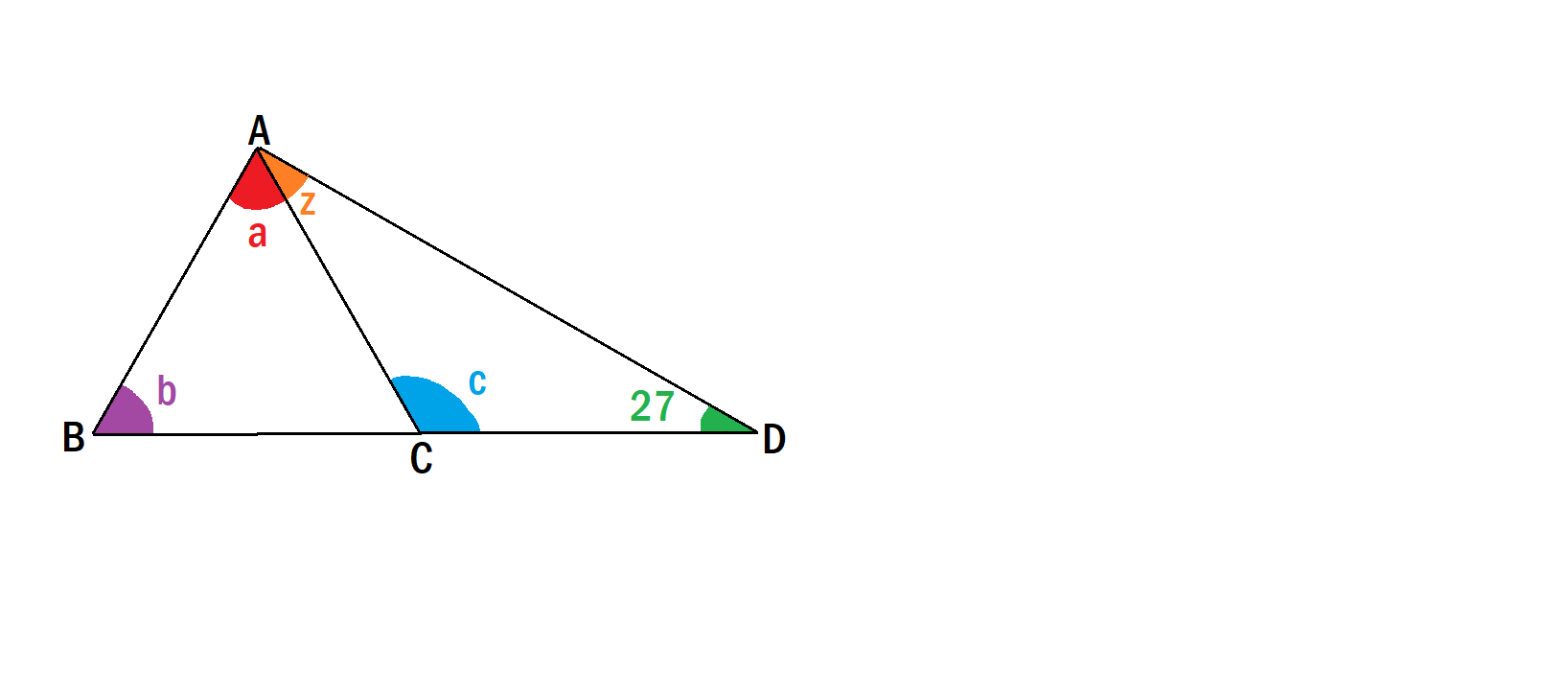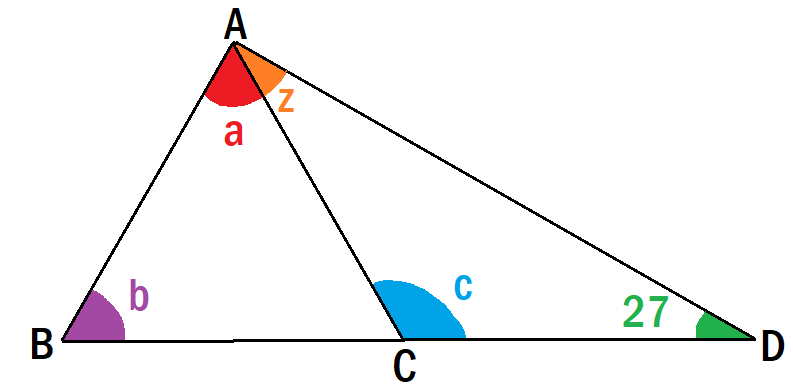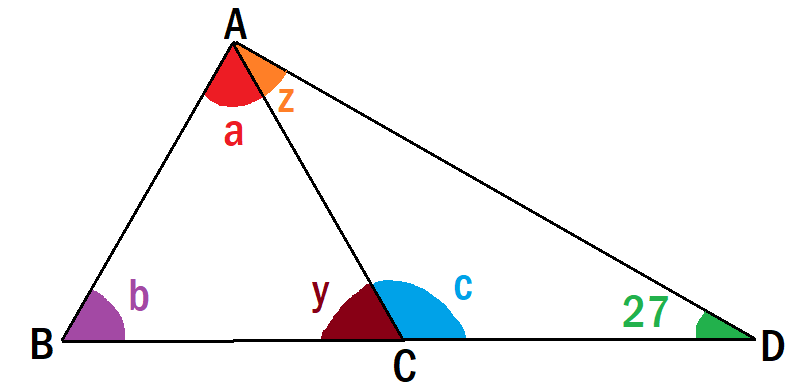Anlgle Hunters
In the diagram, the following is known:
- A B = A C = C D .
- Angle D is 27 degrees.
Can you find angles a , b , c , z in degrees?
Note that B C and C D are collinear

This section requires Javascript.
You are seeing this because something didn't load right. We suggest you, (a) try
refreshing the page, (b) enabling javascript if it is disabled on your browser and,
finally, (c)
loading the
non-javascript version of this page
. We're sorry about the hassle.
2 solutions
Okay, so we already know that angle D is 27 deegres.
 We also know that AB=AC=CD. That means that both triangles are isosceles.
We also know that AB=AC=CD. That means that both triangles are isosceles.
If a triangle is isosceles then the two angles opposite the equal sides are equal.
So z=D=27 .
Now that we know z we can easily find c.
As we all know, the sum of a triangle's angles is 180. So:
c=180-(z+D)
180-(27+27)
180-54
*=126. *
Now it's time to find b. In order to find b we have to add another angle, let's name it y.

y is supplementary with c. So:
y=180-c
180-126
=54
As we already know, b and y are equal, because the triangle is isosceles.
That means that b=54
Finally, only a is left. As we mentioned before, the sum of a triangle's angles is 180. So:
a=180-(b+y) 180-(54+54) 180-108 =72
OR
a=180-2b 180-54*2 180-108 =72
We aren't given that B C and C D are colinear. The diagram doesn't suggest this either because B C is at an angle, but C D is horizontal.
Log in to reply
Well, the fact that you aren't given that BC and CD are collinear is true. Do you think that I should add this to the information? Thanks for commeting.
Log in to reply
Yes. It is essential to the proof. Either that, or say C is a point on line B D .
Log in to reply
@Blan Morrison – Okay! Thanks!
Log in to reply
@Christine Katsamatsa – You need to finish the sentence!
Log in to reply
@Blan Morrison – Whoops! I didn't notice that! thanks for telling me!
△ A C D is isosceles with A C = C D , therefore z = 2 7 ∘ . The sum of interior angles of a triangle is 1 8 0 ∘ , so c = 1 8 0 − 2 7 − 2 7 = 1 2 6 ∘ . Now, ∠ A C B and ∠ c are supplementary angles (their sum is 1 8 0 ∘ ), so ∠ A C B = 1 8 0 − 1 2 6 = 5 4 ∘ .
△ A C B is isosceles with A B = A C , so ∠ A B C = ∠ A C B = 5 4 ∘ . The sum of the interior angles of a triangle is 1 8 0 ∘ , so a = 1 8 0 − 5 4 − 5 4 = 7 2 ∘ .